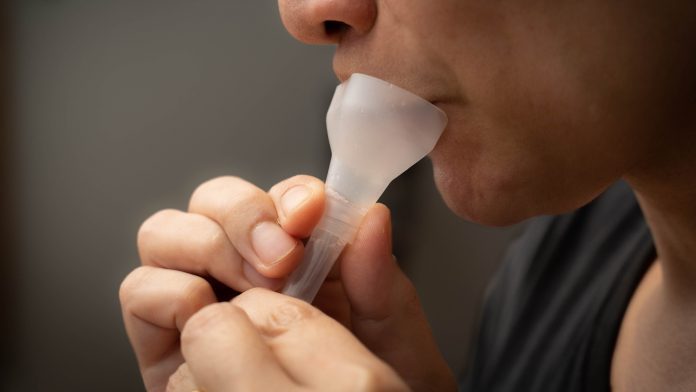
A new study from the University of Sheffield has found that using saliva, instead of blood, to test for adrenal insufficiency significantly improves patient screening.
The findings show how new testing methods can improve the efficiency of diagnoses for adrenal insufficiency and reduce costs. The new methods are being implemented in clinical practices in Sheffield and will eventually be rolled out across the NHS.
The researchers conducted a study into the use of an at-home test which uses saliva to diagnose adrenal insufficiency. Over 200 patients attended the study at Sheffield Teaching Hospitals NHS Foundation Trust’s Endocrine Unit.
The findings have been published in NEJM Evidence.
What is adrenal insufficiency?
Adrenal insufficiency is a common disorder where the body is no longer able to produce cortisol, a major hormone that helps the body overcome stress. Cortisol also helps the body to fight infections and regulates sugars, proteins and fats.
The condition is common in people who take oral steroids for other medical conditions as the steroids cause the body’s natural cortisol-producing response to shut down.
Each participant in the study was identified as being at a high risk of adrenal insufficiency due to long-term steroid use. Asthma, arthritis and inflammatory bowel disease are common reasons for people to undergo anti-inflammatory steroid treatment. These diagnoses are often made late as currently, patients need to go to hospital for blood tests.
Patients preferred saliva testing
In the study, participants were given swabs and a video showing them how to produce a saliva sample. The saliva test checks for a deficiency when people wake in the morning when cortisol levels are peaked. Samples were taken at home, and the majority of patients reported that they preferred this method to having to a Short Synacthen Test (SST), which takes place in hospital.
SST is an invasive screening procedure where patients are required to attend a one-hour appointment where their bloods are taken and measured following an injection of the diagnostic agent teracacidin. Results show that when this new method of screening was introduced 70% of patient visits for diagnostic tests were prevented.
It is estimated that the new method could reduce the number of SSTs undertaken for adrenal insufficiency from 92,000 visits per year to 23,000 across England.
“Cortisol is a vital stress hormone from the adrenal gland and cortisol deficiency, adrenal insufficiency, also called Addison’s Disease, can result in an adrenal crisis which if untreated can be life-threatening,” explained Richard Ross, Professor of Endocrinology at the University of Sheffield’s Department of Oncology and Metabolism.
“This is a great example of NIHR-funded research that will bring immediate benefits to patients – giving them the option to do a simple saliva test at home instead of going to hospital for a blood test, to help spot people at risk of adrenal insufficiency. It’s excellent news that this is now being considered for use across the whole NHS,” concluded Professor Marian Knight, director for NIHR’s Research for Patient Benefit Programme.









